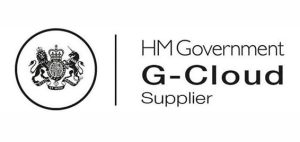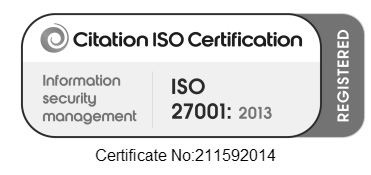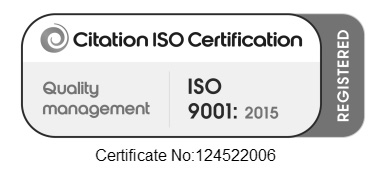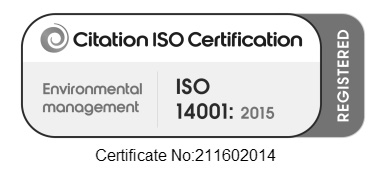The terms ‘managed IT support’ and ‘professional services’ are not new. But with IT requirements growing in complexity, so many organisations still don’t know the difference, or understand what either scope of work entails. To help you make informed decisions to efficiently manage your IT resources, let’s demystify these frequently misunderstood terms, together…
Once upon a time, internal IT departments were almost solely responsible for maintaining hardware and software systems within a business. That meant configuring and updating applications, troubleshooting devices, supporting wider teams with technical difficulties, protecting local files, and so on. In other words, minimising downtime and keeping performance in check.
But a lot has changed over the years. Security concerns are growing at pace, workforces are becoming geographically disparate, and tech estates are more complex than ever. More recently, budgets have come into sharper focus too. Today’s IT professional therefore occupies a much more expansive role. As such, organisations are increasingly leaning on external expertise to help ease the load (and the headache!) — from managing routine helpdesk support tickets to implementing robust security measures, facilitating tech stack relocations, offering end-to-end consultancy services, and more.
The challenge is, how do firms know which kind of support they really need? Of course, jargon doesn't make the decision any easier. Managed IT support and professional services are two of the most talked about topics in the IT space right now. They're also two of the most frequently confused. So, what’s the real difference? And which one could help take your business to new heights?
What is managed IT support?
With this service model, companies partner with specialised providers to oversee and maintain their IT infrastructure. This may include remote monitoring and maintenance of the IT estate, incident response support and disaster recovery, technical assistance and troubleshooting, to name just some examples.
As well as helping to reduce costs, offloading technical duties in this way can help free internal resources for more revenue-generating tasks. In turn, this could have a crucial impact on customer service quality, employee productivity, stakeholder relationships, and more. Plus, the holistic approach helps streamline operations and maximise efficiency too.
There’s also much to be said about the level of expertise and experience available with a specialised managed service provider (MSP). Working day in, day out with varied threats is a holy grail for managing cybersecurity threats, and exposure to a variety of challenges means they’ve probably ‘been there, done that’ many a time. Therefore, downtime should always be minimum.
What are professional services?
This refers to a category of specialised, knowledge-based services provided by experts in various fields — including consulting and project management, data and analytics, disaster recovery and business continuity, cloud services, compliance and regulatory assistance, software development, and so much more.
Unlike managed IT support, it typically involves a more granular, in-depth analysis of a firms’ needs. Once a provider has a true grasp on the requirements, they’ll then formulate and implement a strategic roadmap to help navigate a specific challenge or capitalise on a unique opportunity. Think of a healthcare provider that wants to modernise its IT systems to improve security and meet regulatory requirements, for example.
Generally speaking, professional services are usually more project based, whereas MSPs can feel like more of an extension of your internal teams.
How do you know which option is right for your business?
Both services can deliver significant value to your business, but it’s important to consider which might fit the needs of your organisation best. While an MSP will oversee day-to-day operations and manage their own scope of work under a service level agreement (SLA), a professional services provider tends to undertake a specific project, to a set deadline, and empower your internal team to carry it forward. They won’t generally be involved in upkeep or management thereafter.
Of course, the choice between managed IT support and professional services doesn’t need to be an either-or decision. They can work in tandem to meet your business’ needs effectively. The key lies in assessing your current IT capabilities and resources and identifying specific challenges and opportunities. Recognising when to leverage professional services for specialised projects or improvements can pave the way for a seamless transition into managed IT services when necessary.
How do you choose the right technology partner?
Choosing the right managed IT support or professional services provider hinges on many factors. But here at Central, we’re big believers in true tech-agnosticism. Solutions should always be tailored to your firms’ specific needs, rather than selected for tech brand loyalty. Don’t be sold any old piece of kit, if it’s not going to add real value to your business.
A human-centric approach is equally important. Your chosen partner should craft personalised solutions that make you feel like your goals and objectives have been heard. To make an informed choice, evaluate their expertise, case studies and client testimonials, service level agreements (SLAs), and willingness to foster ongoing collaboration. This ensures alignment with your organisation's goals and adaptability to evolving technology needs.
Whether you’re seeking managed IT support of professional services, you’ll always be more than a ticket to us here at Central. As a family-owned business, we have the resources and flexibility to keep it personal too.
Keen to see how we can take your IT strategy to new heights? Get in touch, and let’s get that no-obligations chat booked in.






Central Networks are a strategic technology partner. Excellent technology is a given, customer service, trust and long-term relationships are what drive our business. We support CEOs, Heads of IT, IT technicians and transformation directors to ensure technology provides an edge to their organisations.
Company No: 02604843
VAT: GB 562 6919 13